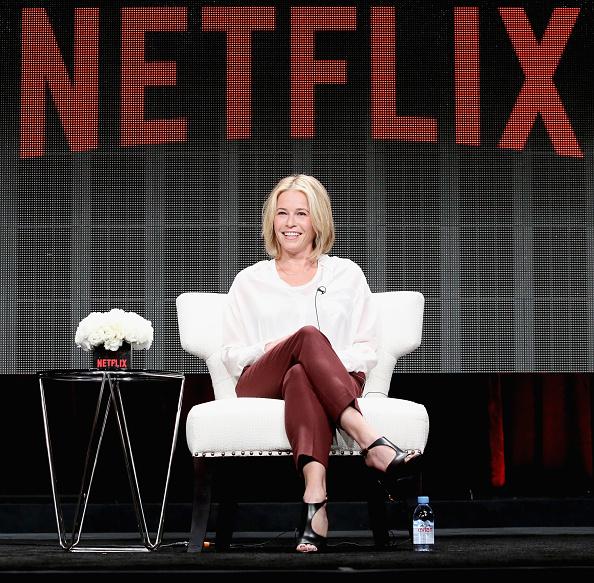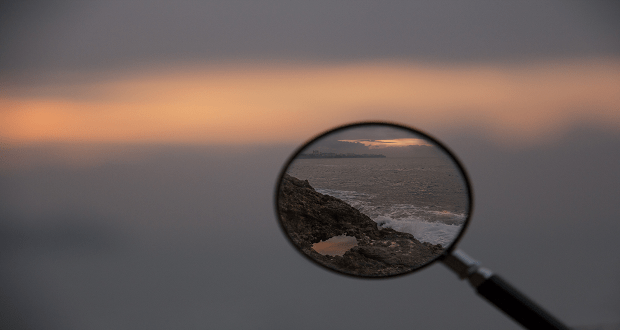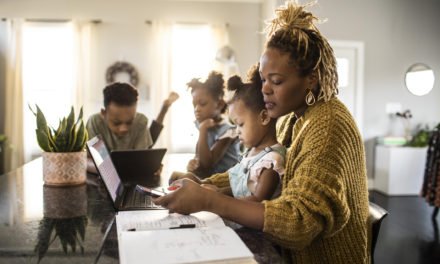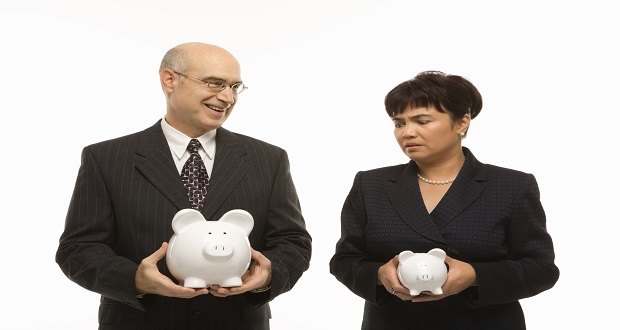
Editor’s Note: This post by James Wright was originally published this week on LinkedIn.
Netflix released their new documentary, Hello, Privilege. It’s Me, Chelsea., and the world is a much better place for it.
The 64-minute film follows Chelsea Handler as she explores how white privilege impacts American culture – and the ways it has benefited her own life and career. The trailer dropped on September 3rd with the documentary debuting on the 12th.
As Netflix explains:
Handler travels around the country speaking with a wide range of people on the topic of race, including fellow comedians Kevin Hart, Tiffany Haddish, and W. Kamau Bell, anti-racism writer and activist Tim Wise, a Republican women’s group in Orange County, CA, college students at an open mic night, and her former high school boyfriend in New Jersey.
While Chelsea’s film isn’t loaded with data and resources like Jose Antonio Vargas‘ White People Documentary released in 2015, it is a good opportunity to understand the types of conversations white people are – or are not – having as it relates to race in America.
Chelsea's film is a good opportunity to understand the types of conversations white people are – or are not – having as it relates to race in America. Click To TweetChelsea is, as expected, authentically Chelsea, and the film opens with a candid conversation with Tiffany Haddish and Kevin Hart, then moves to a college open mic night where Chelsea explains, “I’m filming a documentary…about white privilege because I grew up never thinking about being White because I really had nothing else to compare it to. And it wasn’t until I really got comfortable in my own life that I was able to look around and go, “Something’s f***** up here.”
She further explains that she came to learn and “…to illuminate to people who are not of color (white people) what it means to be of color in this country.”
One student was open in explaining, “We are disenfranchised racially and on a socioeconomic level. It’s great to talk about it because you need to start somewhere. But where is the action going to start….this rabbit hole goes deep – deeper than a documentary.” Another student shared, “One of the things I’ve noticed in conversations on white privilege is that it always ends up being about People of Color’s experience. It comes to here and it stays here, and it never becomes about whiteness. And I think that’s one of the things when you ask about what can I or what can the ‘we’ that is collectively identifying as white do – You do need to learn about others but you also have to learn about yourself.”
So, What Is White Privilege?
Chelsea chose to visit Alpine Helen, a White Community, for their annual Oktoberfest and asked random patrons questions regarding white privilege. The responses might shock you – like the Oktoberfest Patron who felt white privilege was something people are making up in their heads or the other participant who felt it was all fake news – but each tells a story of where we are in 2019 on the understanding of race, white privilege, and racial disparities – especially the Republican women’s group conversation in Orange County, CA.
Tim Wise, an Anti-Racism Writer and Activist, explains white privilege is “a white person problem that has consequences for People of Color. It becomes a problem for Black and Brown folk because we don’t deal with it. If we would deal with it, it wouldn’t be a problem. But you can’t solve a problem that you won’t name or that you won’t even recognize is real.” In The Language of Inclusion, I define privilege as the proven concept that some people in society are advantaged over others.
Wise further shares, “You have a lot of white folks now who are having to, for the first time, sort of confront the interrogation of their privilege, and once you see it you want to jealously guard it because you believe that it’s a zero-sum game. [The idea that] if People of Color gain, I lose. But the data tells us white folks have far more wealth, far more advantage than their Black and Brown counterparts. Middle class white folks [are] far better off in terms of wealth than middle class Black folks. And in fact, working class white people whose head of household didn’t even finish high school (that is, high school dropouts) have one-third more wealth on average than Black households headed by college grads.” (See Also: Extensive Data Shows Punishing Reach of Racism for Black Boys.)
Wise continues, “…That doesn’t mean that that white family is not struggling, it just means that it still on balance pays to be white in this country.”
Is Voting a Privilege OR a Right?
The 15th Amendment to the Constitution gave African American men the right to vote in 1870. But many weren’t able to exercise this right. Some states used literacy tests and other barriers to make it harder to vote. The 19th Amendment to the Constitution, ratified in 1920, gave American women the right to vote.
Federal laws passed over the years help protect Americans’ right to vote and make it easier for citizens to exercise that right. The Civil Rights Acts created some of the earliest federal protections against discrimination in voting. These protections were first outlined by the Civil Rights Act of 1870 and were later amended by the Civil Rights Acts of 1957, 1960, and 1964. The Voting Rights Act of 1965 prohibited voter discrimination based on race, color, or membership in a language minority group. It also required certain places to provide election materials in languages besides English.
It should be pretty clear by now that Voting Is A Right. But in the documentary, one Oktoberfest Patron was adamant in saying voting was a privilege and not a right.
Carol Anderson, a Historian at Emory University explains, “Between 2014 and 2016, 16 million American citizens were wiped off of the voter rolls…America has created Voter ID Laws where you have about 25% of African Americans who do not have the IDs and with the Exact Match program in GA, 53,000 voter registrations were held in this kind of electoral purgatory in the 2018 election. 70% of those were African American.”
On Being a Person of Color in the U.S.
Tim Wise took a moment to explain that white privilege is “just the flip side of oppression or discrimination. So if you think, for instance, about American history and you think of about the hundreds of years of both enslavement and then segregation, this is the history that virtually everyone agrees was there, was real, was awful, even the Klan will admit that things were unequal….they won’t deny it.
So, you have hundreds of years of oppression, which we all agree on. What’s the flip side of oppression? If some people are down, by definition other people have to be up. You have hundreds of years of the elevation of whites and the subordination of Black and Brown folks, it’s pretty absurd to think that when you pass a few laws, roughly 50-55 years ago, that all of that inertia suddenly comes to a stop when it has helped people accumulate a huge advantage and at the same time accumulate disadvantage for others for literally centuries.”
Carol Anderson further explains, “Black people feel what an unequal oppressive system has done to their communities. They feel it viscerally. They feel it every day. They feel it when they’re going down the street and a cop pulls in behind them. They feel it when they walk into a store. They feel it when they’re looking at an unequal paycheck. This is part of the work that white people have to do frankly.
White people have to have the conversation with white people about what the actual history is, about what the actual consequences are, and those are hard conversations because what you’re doing is you’re re-ordering a history of a people. You’re re-ordering personal histories. That is like striking at the core of someone’s identity and that is where the backlash is – that is where the defensive mechanism is. “
W. Kamau Bell, a Comedian, wanted to clarify this notion of racism being a feeling by explaining racism as, “…a measurable force that you can see through the history of this country to this moment right now …and to the moment after that….and the one right after that.”
Bell is referring to the many data points that prove it is not just a feeling but a feeling nurtured through lived experiences:
- 15 Charts That Prove We’re Far From Post-Racial
- U.S. Hate Groups Rose 30 Percent In Recent Years, Watchdog Group Reports
- Smart People Are As Racist As Less-Smart People – But Smart Enough to Hide It
- A Sociologist Examines The “White Fragility” That Prevents White Americans From Confronting Racism
Chelsea talked openly about her history of doing drugs with her ex-boyfriend, Tyshawn, and never once being arrested while he was, even though they were both guilty.
Chelsea admits she thought the police never arrested her because she had a good personality. She explains, “It never occurred to me that it was a racial thing. I should have known better. Of course, it was a racial thing.” Tyshawn was clear to point out, she had “the complexion for the connection.”
Ryan Haygood, CEO of New Jersey Institute for Social Justice further explained, “In New Jersey, a Black kid is 30 times more likely to be in prison than a white kid even though Black and white kids commit most offenses at the same rate…We’ve learned that there are very different responses to when Black and Brown kids do adolescent things vs. when white kids do adolescent things.” (See: Schools’ Discipline for Girls Differs by Race and Hue.)
Haygood continues, “I think it’s important for people of privilege to recognize the way in which privileges are advanced through racist systems….We all live in this country together…what we actually need are white allies to stand with us on issues – yes – specific to us, but that ultimately impact you as well.”
What YOU Can Do
Anderson shares that starting with FACTS about how you got here is absolutely essential. “This is about the way that this system has created winners and losers regardless of what they do. This is about the way it has redistributed opportunities and resources based on nothing other than privilege.”
Wise goes on to say activism doesn’t have to be this epic thing where you’re marching – and there is space for that – but he strongly suggests starting where you are in the communities in which you live and the schools in which your kids attend, in workplaces – having good, productive conversations about things that are really important to People of Color and should also be important to white people.
As the documentary concludes, “It’s about advocating in all spaces even times when it makes you uncomfortable – a lifelong, daily, 100% being committed to showing up for racial justice for the rest of your life.”
As the documentary concludes, 'It’s about advocating in all spaces even times when it makes you uncomfortable – a lifelong, daily, 100% being committed to showing up for racial justice for the rest of your life.' Click To Tweet

















